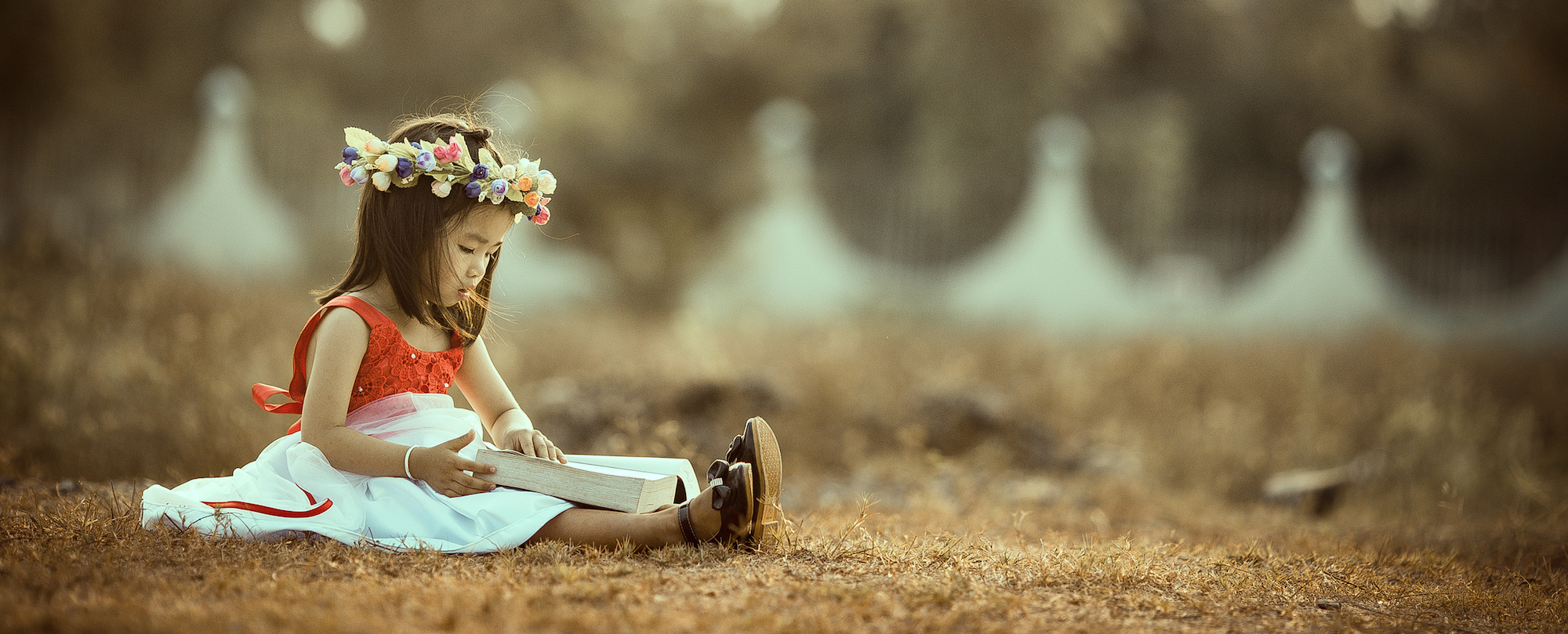Scaachi Koul is a senior writer for BuzzFeed News whose debut essay collection, One Day We’ll All Be Dead and None of This Will Matter, addresses sexism, stereotypes, and the experience of growing up the daughter of Indian immigrants in a Western nation. Jessica Valenti is the founder of the popular, award-winning website Feministing.com and the author of five books, including Sex Object: A Memoir. The two recently sat down at Greenlight Bookstore in Brooklyn to discuss feminism, racial bias, and the stories behind Scaachi’s new book.
This conversation has been edited and condensed. To view the full conversation, click the video below.
Jessica: You’ve gotten a lot of sexist and racist harassment and threats, but you wrote about having empathy for the trolls. You wrote, “It’s not fun to have sympathy for the people who are trying to hurt you, but their actions can sometimes make sense. Easier than trying to get better is trying to break something else down.” Why is that important to you?
Scaachi: I can either feel sorry for [the harasser] or I can feel bad about myself. Those are my two options, and I don’t want to waste time feeling like shit. A lot of these people who scream at women or anybody not in the majority, they all have some crazy trauma that they’re not dealing with. And so the best way for them to handle it is to freak out at you.
Jessica: [In your book, there’s] such a great essay about rape culture and assault and the violent male gaze, I guess is one way of putting it. Can you talk a little bit about what you call “surveillance culture”?
Scaachi: Basically the argument I’m making is that women are watched in a way that men aren’t. Men are watching women. When you’re a woman and a guy buys you a drink at a bar, what is he buying you a drink for? He’s not just buying you a drink because he thinks you’re cute. Alcohol is a way to monitor your behavior and to see, “Are you getting soft enough that I can take you home? What’s your ability to consent?”
They buy you a drink ’cause that’s a way to make you malleable. Certainly not all men, but it’s something that we haven’t examined because it’s just part of the culture.
Jessica: We’re told that not all men are like this, but when you were growing up, you couldn’t go to a sleepover if your friend’s mom wasn’t there and just the dad was there, right?
I had the same thing. My mom hated when I would go out with a group of guy friends, and she was like, “It’s not safe to be around groups of guys.” So we get these conflicting messages that it’s not safe to be in these spaces but also, men are fine. What do we do with that?
Scaachi: I don’t know. I’ve been thinking about this a lot. Ultimately, we’re talking about consent when everyone’s like, 20, and that’s too late. We’ve missed the boat. My nephew’s 14 and the other day, I talked to him about this. He heard me in a way that I have never had a man listen to me on that topic. Because his brain is still soft, and I can get in there. But there’s this anxiety around talking about consent at an early age, as if it’s going to do something bad to these kids.
In Ontario, they were [discussing] the sex ed curriculum, and they wanted to add provisions that by kindergarten, you would be explaining to kids what consent looks like. Now at that age, that’s like, “Don’t hug someone if they don’t want it. You don’t have to be hugged if you don’t want it.” Really basic stuff. And this was a big problem for all these parents because they were like, “You’re teaching my kid about butts!” That’s not what’s happening.
Trending: How to Transform Daily Habits into Life-Changing Rituals
Jessica: I have a six year old, and I say all the time, “You don’t need to hug.” My daughter was once in a grocery store when she was three, and a woman came up to her and started petting her hair. My kid shoved her hand off, and the women was very upset. She’s like, “Your daughter’s rude,” and I’m like, “No, you’re rude. Don’t touch her.” I was very glad that she felt okay to say no to an adult.
One of things that I love about the book is that it’s equal parts cultural criticism and memoir. I’m wondering if you always knew you wanted to take on these issues about sexism and racism through the framework of yourself and your family.
Scaachi: I think political things and personal things tend to intersect, so I wouldn’t be doing this any other way. Also my parents are rife with material, so if I don’t profit off of it, then what am I doing? I mean, really.
“We’re talking about consent when everyone’s like, 20, and that’s too late. We’ve missed the boat.”
Jessica: How did they react?
Scaachi: After [the book] came out, my mom sent me a text that said it made her laugh, but also it was sad. I was like, “Correct.”
Jessica: Do you know what was hardest for your mom to read? I think that as a parent, what would have been hardest was knowing about all of the terrible, racist things kids said to you when you were younger.
Scaachi: I think that probably made my mom sad.
Jessica: When women write about their life and their experiences, and especially when they write about sex or have a candid voice, we’re often called shallow or navel-gazing. I do think that’s changing somewhat, [but] how do you think we can turn [that] on its head?
Scaachi: Like so many trends in literature or film or TV, [we’ve] just got to keep doing it. What’s nice is that everyone has come around to the fact that women writing about themselves is a profitable, great thing, and it yields some really interesting stories. So the market has told everybody that this is not something to balk at.
Jessica: Let’s talk about Canada… I think it’s looking pretty good to a lot of us these days, [but] you describe it as the land of ice and casual racism. Can you talk about that a little bit?
Scaachi: I think it’s really easy to be like, “Everything’s great there.” We do have some really nice things, like health care, for example. [But] because there’s so much [talk] about how great the country is, a lot of insidious examples of racism and sexism go ignored. The government is ignorant [about] long-standing indigenous issues, namely missing and murdered indigenous women. There’s no discussion around the violence being enacted against black people in the city, namely black men. Carding is a huge issue in Toronto. All these things that happen there get ignored.
Jessica: One last question. What do you hope people take away from the book the most?
Scaachi: I hope the book makes you feel a little less lonely, and I hope it tells you something about a world you might not live in, and I hope it makes you laugh for a minute.
[Questions from the audience]
Audience: Last week I was at the Trevor Noah event, and [they] talked about how Americans are uncomfortable with discomfort. Would you say that is true of Canada as well?
Scaachi: Yeah. They’re deeply uncomfortable with being told that something might not be right. I think a lot of Canadians are comfortable existing in a kind of mediocrity, which is what they’re living in right now. Canadian audiences can be incredibly hostile if they feel like you’re telling them anything’s wrong with their country.
“Everyone has come around to the fact that women writing about themselves is a profitable, great thing, and it yields some really interesting stories.”
Audience: You tell all these stories about your family. How did you get away with that?
Scaachi: I just did it. What are they going to do? I get a lot of brown girls coming up to me and asking how to get their parents on board with whatever rebellion they’re enacting that week. My policy is [that] your parents are much weaker than you are. You don’t know that yet because you haven’t tested it to that degree, [but] it’s like [with] spiders. They’re far more afraid of you than you are of them.
Trending: 5 Reasons Life Gets Better After Your 40s
My dad didn’t talk to me for three months because I was dating an old, white man. And you know what? Then he stopped, because it wasn’t going to work. I was stronger than him in that. [But] pick your battles, don’t throw everything out the window.
Audience: Books or TV shows written by women are criticized [for] not being accessible to all women, in a way that things written by men are never criticized for. I wondered if you had any thoughts on what would need to happen for people to stop being like, “It didn’t personally appeal to me, so it’s worthless.”
Scaachi: Again, I think this is a critical mass issue. You just keep making things. There will always be one guy who’s like, “I don’t understand this, and therefore I don’t like it and will not acknowledge it.” That’s fine.
I get asked that relatability question all the time. My book is about brown-ness and ultimately, I wrote it for brown girls. Everybody can read it and get something from it, but that is who I wrote it for.
Audience: When I ask my dad about the patriarchy, he’s always like, “Women are stronger than men. I really do believe that. It’s all biological.” How do you deal with that passive feminism, [especially if] it’s someone your age and living in the same time period?
Scaachi: That is much more frustrating, because then it feels like this idiot peer of mine doesn’t understand something basic. First of all, it’s not your job to educate every dumb dude on the planet. That’s incredibly taxing and it’s not fair. If you’re comfortable, and if this is someone you want to continue spending time with, I think you should argue with them.
I don’t need friends who don’t understand a basic part of my existence. I don’t tolerate those friends. That’s my choice. It’s up to you about how much fighting you want to do. It’s not your job. It’s not your responsibility.
Jessica: To add to that, don’t waste your energy talking to brick walls. Your activist, feminist energy is a precious resource, and you should use it strategically. If it’s someone you care about and you really want to change their mind, yes, fight with them, or don’t fight with them. But don’t waste your energy if it’s not someone that you care about.
“Don’t waste your energy talking to brick walls. Your activist, feminist energy is a precious resource, and you should use it strategically.”
Audience: Was there one particular story in the book that was really difficult to get down on paper?
Scaachi: The last essay about my dad and his incredible skill [with] the silent treatment was really difficult. When I was writing it, we still weren’t talking. That was challenging because I didn’t have any closure, and I didn’t know what that relationship was going to end up looking like. So that one was really tricky, and I don’t think it ends with a tremendous amount of closure. It doesn’t end like, “And everything’s fine.”
Jessica: When you’re writing about your own pain, people like the happy ending. They like the silver lining and the, “It’s going to be fine.” But it’s not always.
Trending: 5 Simple Strategies for Persuading Anybody
Scaachi: Yeah, sometimes it’s not fine. My dad is speaking to me again and everything’s okay, but it wasn’t like that when I was writing it in November. It was still pretty surly.
Audience: I also write a lot about the idea of women in pain, both emotional and otherwise. Sometimes the weight of that feels crushing. I’m wondering, what’s something that you [two] tell yourselves to keep going?
Jessica: What was helpful was trying to suss out the cumulative impact of sexism. Not just one experience but living with a lifetime of them. For me, what’s been useful is forgiving myself for feeling that weight and crushing impact.
A lot of the time we’re told to smile through it, like again, give that silver lining [or] happy ending. We’re not allowed to wallow at all. I think being honest about that and talking about that is helpful. It doesn’t mean it goes away, but it at least makes me feel like I’m not crazy for feeling it.
Scaachi: I disengage a lot. Sometimes I just don’t play. That was a hard lesson that I needed to learn, because I felt like I needed to engage with every dumb [internet] comment, and at a certain point, you realize, “This isn’t helping me at all.” Disengaging is a lot harder than people think, but it’s essential.
Audience: Could you suggest three other contemporary women writers to read?
Scaachi: Sam Irby’s latest [book] comes out at the end of the month. It’s called We Are Never Meeting in Real Life, [and] it’s really funny. Vivek Shraya has a really good collection of poetry called Even this Page is White.
Zoe Whittall has a book that I really liked called The Best Kind of People. It’s fiction, and it’s a terrifying look at rape culture. Doree Shafrir’s book, Startup, was really excellent. I loved that one.
Jessica: She doesn’t have a book out, but Syreeta McFadden is a really amazing writer.
Audience: I’d also add Roxane Gay.
Jessica: Of course. That goes without saying.



























